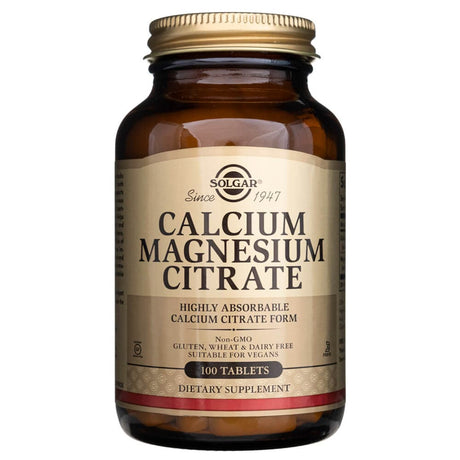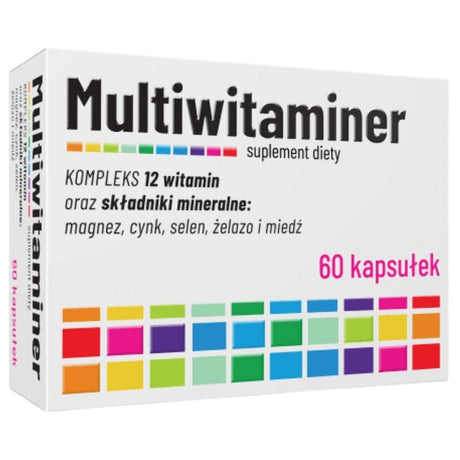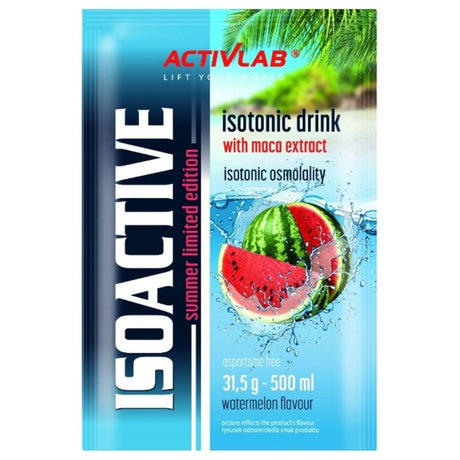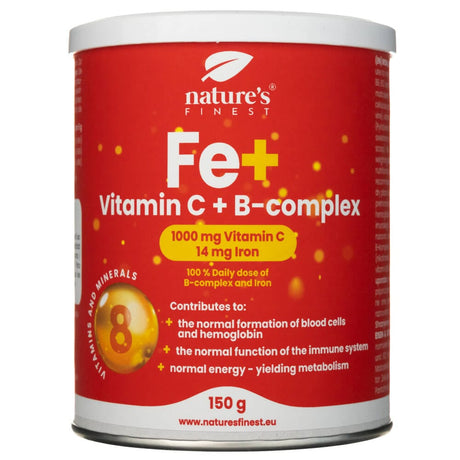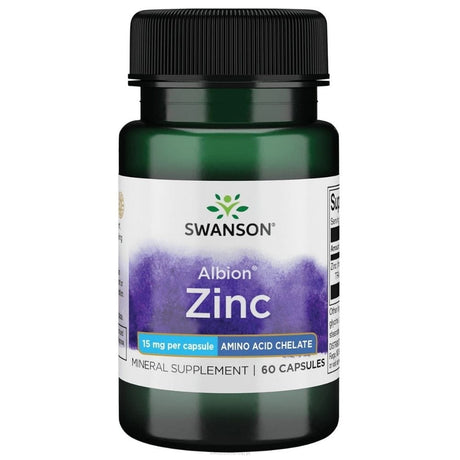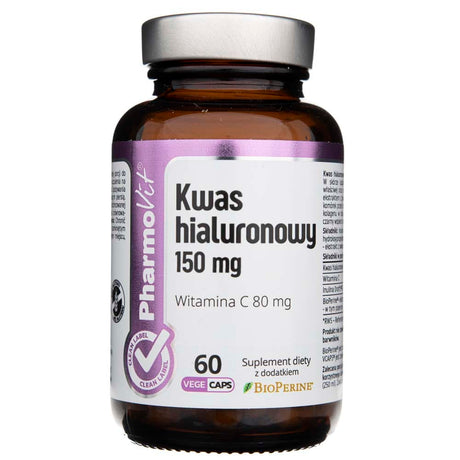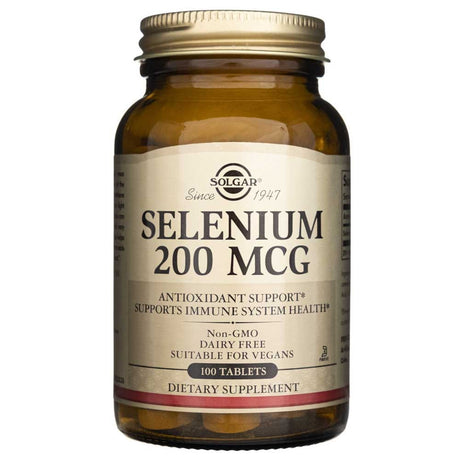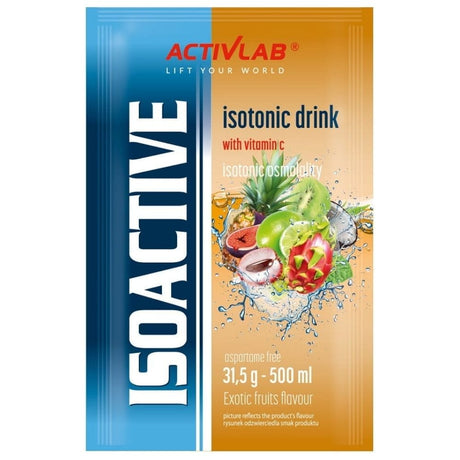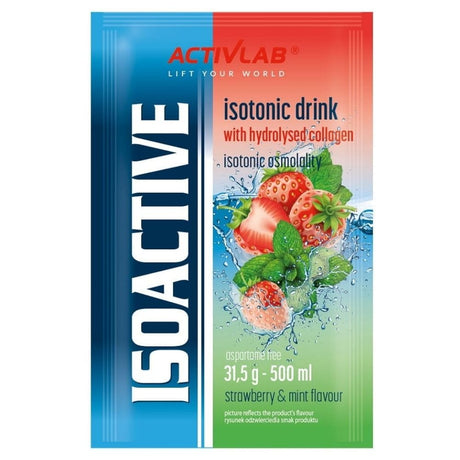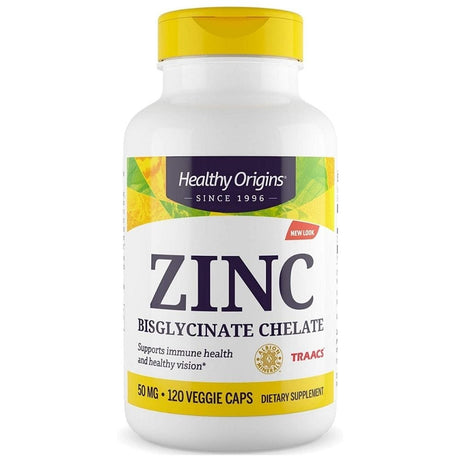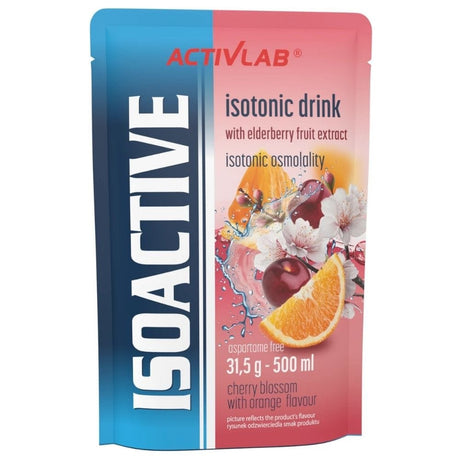Solgar
Solgar Calcium Magnesium Citraat - 100 tabletten
Reguliere prijs €20.79Eenheid prijs€0.21 / itemNiet beschikbaarSolgar
Solgar Calcium Magnesium met Vitamine D3 - 150 tabletten
Reguliere prijs €17.19Eenheid prijs€0.11 / itemNiet beschikbaarNow Foods
Now Foods Magtein Magnesium L-Threonaat - 90 Capsules
Reguliere prijs €41.29Eenheid prijs€0.46 / itemNiet beschikbaarMedverita
Medverita Viscollageen Verisol ® F + Rozenbottel + Hyaluronzuur + Biotine - 120 Capsules
Reguliere prijs €10.79Eenheid prijs€0.09 / itemNiet beschikbaarALG Pharma
ALG Pharma Multivitamine - 60 Capsules
Reguliere prijs €4.09Eenheid prijs€0.07 / itemNiet beschikbaarSalvum
Protego Magnesium, Vitamine B6 - 20 bruistabletten
Reguliere prijs €2.29Eenheid prijs€0.11 / itemNiet beschikbaarMedverita
Medverita Chelated Zinc 15 mg - 180 Capsules
Reguliere prijs €5.49Eenheid prijs€0.03 / itemNiet beschikbaarActivlab
Activlab Isoactive Isotonic met Maca, Watermeloen - 31,5 g
Reguliere prijs €0.39Eenheid prijs€12.38 / kgNiet beschikbaarNature's Finest
Nature's Finest FE+ Vitamine C + B Complex - 150 g
Reguliere prijs €7.19Eenheid prijs€4.79 / 100gNiet beschikbaarSwanson
Swanson Albion Zink 15 mg - 60 capsules
Reguliere prijs €2.99Eenheid prijs€0.05 / itemNiet beschikbaarNutrend
Nutrend Magneslife Vloeibaar, Sinaasappel - 10 x 25 ml
Reguliere prijs €8.49Eenheid prijs€0.85 / itemNiet beschikbaarPharmovit
Pharmovit Hyaluronzuur 150 mg - 60 Capsules
Verkoopprijs €11.78 Reguliere prijs €13.09Eenheid prijs€0.20 / itemNiet beschikbaarSolgar
Solgar Selenium 200 mcg - 100 tabletten
Reguliere prijs €14.09Eenheid prijs€0.14 / itemNiet beschikbaarInvex Remedies
Invex Remedies Silor B Silicium met boor, vloeibaar - 500 ml
Reguliere prijs €22.09Eenheid prijs€44.18 / lNiet beschikbaarActivlab
Activlab Isoactive Isotonic met Vitamine C, Exotische vruchten - 31,5 g
Reguliere prijs €0.39Eenheid prijs€12.38 / kgNiet beschikbaarActivlab
Activlab Isoactive Isotonic met Collageen, St RAW bes en Munt - 31,5 g
Reguliere prijs €0.39Eenheid prijs€12.38 / kgNiet beschikbaarStarpharma
Starpharma Gezonde Lolly, Ananas, Framboos, St RAW bes - 3 Stuks + Sweet Ring
Reguliere prijs €1.59Eenheid prijs€0.53 / itemNiet beschikbaarOlimp
Olimp Chela-Mag B6 Forte Shot, Sinaasappelsmaak - 20 stuks
Reguliere prijs €32.99Eenheid prijs€13.20 / 10mlNiet beschikbaarMyVita
MyVita Zilver Haar Huid Nagels - 120 Capsules
Reguliere prijs €16.09Eenheid prijs€0.13 / itemNiet beschikbaarBiowen
Biowen Magnesium Malaat 835 mg met Vitamine B6 (P-5-P) - 100 Capsules
Reguliere prijs €12.49Eenheid prijs€0.12 / itemNiet beschikbaarHealthy Origins
Healthy Origins Zink Bisglycinaat Chelaat - 120 Capsules
Reguliere prijs €18.39Eenheid prijs€0.15 / itemNiet beschikbaarActivlab
Activlab Isoactive Isotonic met vlierbes, Kersenbloesem met sinaasappel - 31,5 g
Reguliere prijs €0.39Eenheid prijs€12.38 / kgNiet beschikbaarOlimp
Olimp Chela-Mag B6 Forte Shot, Sinaasappelsmaak - 9 Ampullen
Reguliere prijs €13.19Eenheid prijs€1.47 / itemNiet beschikbaarNow Foods
Now Foods ZMA (Magnesium, Zink, B6) - 90 Capsules
Reguliere prijs €22.59Eenheid prijs€0.25 / itemNiet beschikbaar
Het belang van mineralen voor je gezondheid
Mineralen zijn cruciale componenten die een essentiële rol spelen bij het behouden van een optimale lichaamsfunctie. Deze essentiële elementen dragen bij aan de opbouw van sterke botten, het behoud van het zuur-base evenwicht, en de vorming van rode bloedcellen. Hoewel een evenwichtige voeding kan voorzien in veel noodzakelijke mineralen, kan, suppletie nuttig zijn als de inname via de voeding tekortschiet. Laten we ons eens verdiepen in de wereld van mineralen, hun soorten, en hun betekenis voor een gezond lichaam.
De essentiële rol van mineralen in het functioneren van het lichaam
Voor een langdurige gezondheid, moeten alle mineralen in balans zijn in het lichaam. Tekorten aan mineralen kunnen leiden tot ernstige gezondheidsproblemen zoals bloedarmoede, schildklierproblemen, en verlies van tandglazuur. Deze vitale elementen reguleren de hartslag, versterken botten en tanden, en helpen bij het handhaven van een gezonde bloeddruk. Zorgen voor voldoende mineralen is de sleutel tot het ondersteunen van het algehele welzijn en het voorkomen van verschillende gezondheidsproblemen.
De verschillende soorten mineralen begrijpen
Mineralen worden in twee hoofdgroepen ingedeeld: micronutriënten en macronutriënten. Deze indeling is gebaseerd op de dagelijkse behoefte aan elk type mineraal.
Micronutriënten: Kleine hoeveelheden, Grote impact
Micronutriënten zijn mineralen die nodig zijn in kleine hoeveelheden, meestal minder dan 100 mg per dag. Ondanks hun lage benodigde hoeveelheid, zijn deze mineralen cruciaal voor het goed functioneren van het lichaam. Enkele essentiële micronutriënten zijn:
- Zink : Essentieel voor de immuunfunctie, wondgenezing, en de gezondheid van de huid
- Koper: Belangrijk voor de gezondheid van het hart en zuurstoftransport
- IJzer: Essentieel voor de vorming van rode bloedcellen en zuurstofcirculatie
Macronutriënten: De basis van minerale gezondheid
Macronutriënten zijn nodig in grotere hoeveelheden, dan 100 mg per dag. Deze mineralen vormen de basis van veel lichaamsprocessen en zijn een integraal onderdeel van de celstructuur. De belangrijkste macronutriënten zijn:
- Calcium : Cruciaal voor gezonde botten en spierfunctie
- Magnesium: Belangrijk voor energieproductie en zenuwfunctie
- Kalium: Essentieel voor de gezondheid van het hart en de vochtbalans
Belangrijkste mineralen voor een optimale gezondheid
Hoewel alle mineralen belangrijk zijn, kunnen sommige moeilijker te verkrijgen zijn via de voeding alleen. Hier zijn enkele essentiële mineralen die speciale aandacht verdienen:
Chroom: De bloedsuiker balansregelaar
Chroom is een sporenmineraal dat een cruciale rol speelt in het glucosemetabolisme. Het helpt de bloedsuikerspiegel onder controle te houden, mogelijk het risico op diabetes te verminderen. Bovendien, kan chroom helpen het slechte cholesterol te verlagen en het goede cholesterol te verhogen, wat bescherming biedt tegen atherosclerose.
Zink: de immuun- en huidondersteuner
Zink is essentieel voor het behoud van een gezonde huid, haar, en nagels. Het speelt ook een vitale rol bij wondgenezing en de immuunfunctie. Een tekort aan zink kan leiden tot langere genezingstijden en huidproblemen. Dit mineraal draagt ook bij aan de sterkte van de botten, waardoor het heilzaam is bij aandoeningen zoals reuma.
Koper: De hulp voor de bloedsomloop
Koper is cruciaal voor het behoud van een gezonde bloedsomloop en hartfunctie. Het helpt bij het zuurstoftransport naar de cellen en beïnvloedt de neurotransmitteractiviteit, wat de hersenfunctie kan verbeteren. Een adequate koperinname kan de algehele cardiovasculaire en neurologische gezondheid ondersteunen.
Conclusie: Het omarmen van minerale gezondheid
Het begrijpen van de rol van mineralen in je lichaam is cruciaal voor het behouden van een optimale gezondheid. Hoewel een evenwichtige voeding de beste bron van mineralen is, kunnen, supplementen helpen tekorten aan te vullen en het algehele welzijn ondersteunen. Bij Medpak, bieden we een breed scala aan hoogwaardige minerale supplementen om je te helpen aan je voedingsbehoeften te voldoen. Ontdek onze collectie en zet een stap naar een betere gezondheid Toda y.
